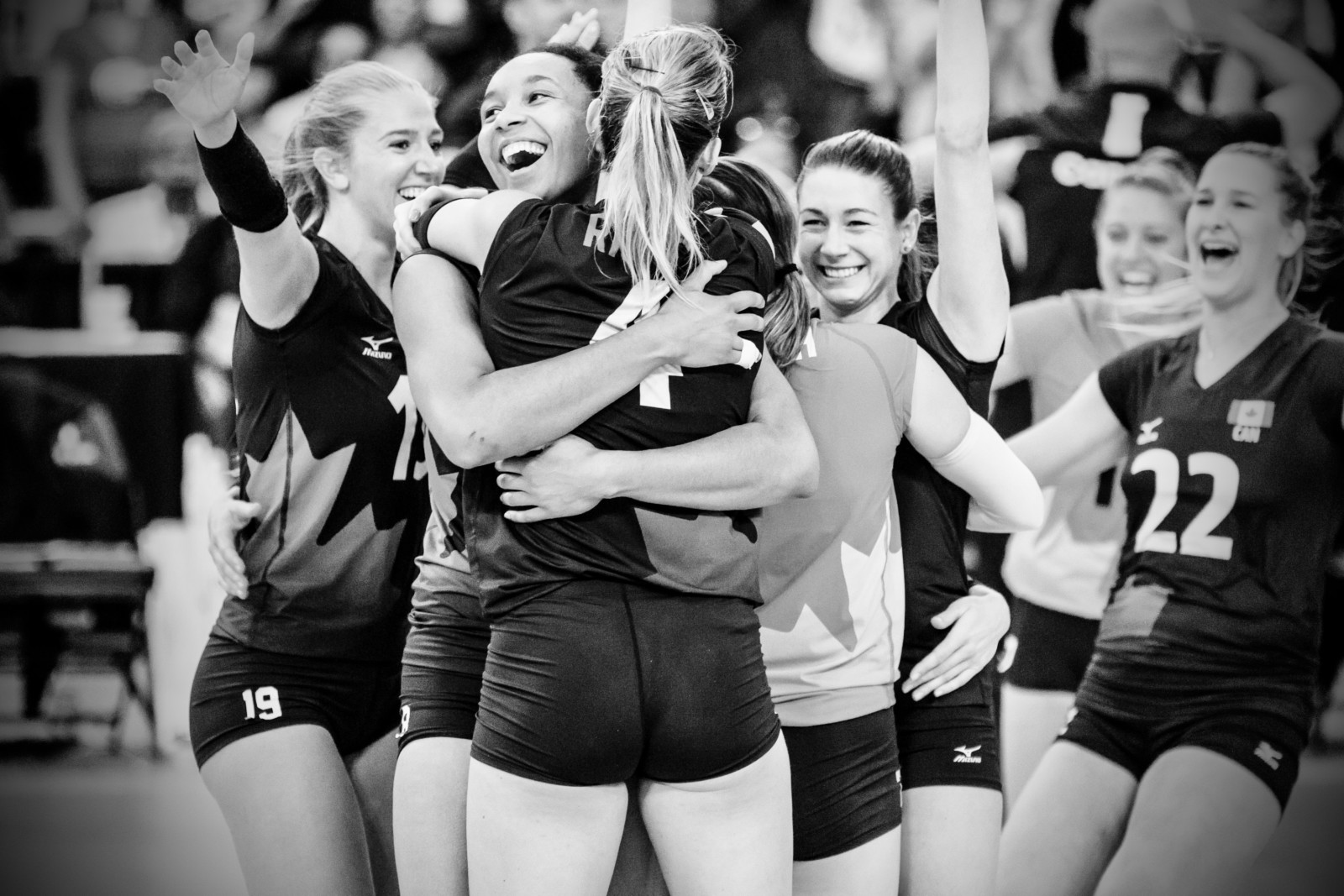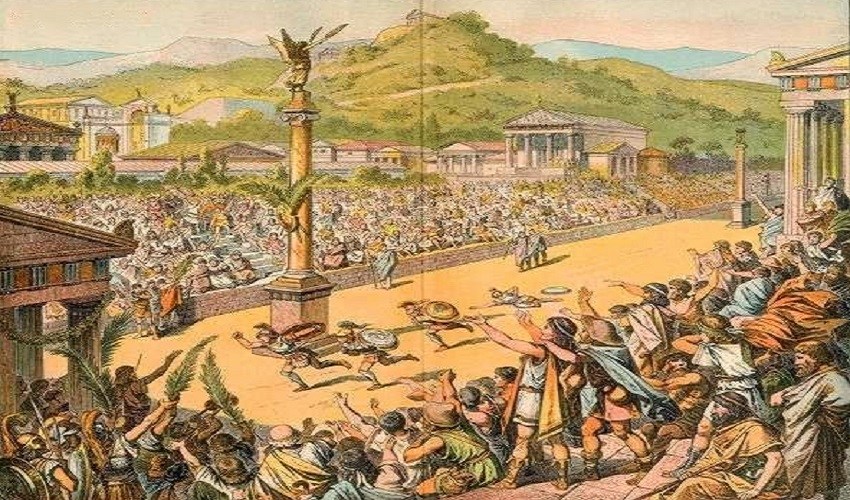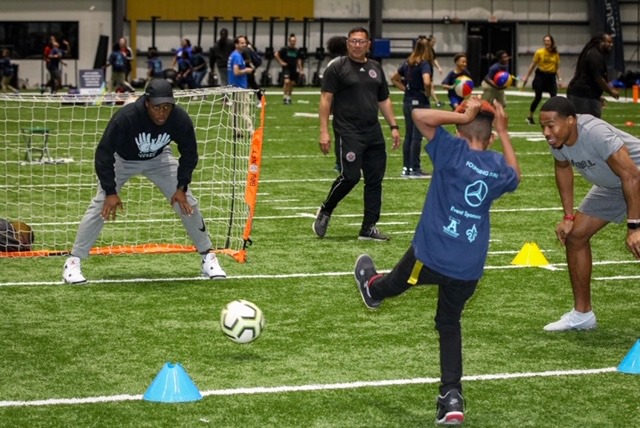
It’s no secret – sports is an incredible way to increase fitness, teamwork, and self-confidence. But what does it have to do with diplomacy?
If you ask us? Everything.
Jim Davis, our Director of Operations and coordinator of our intern program, is always on the lookout for athletes when recruiting new interns. He says that playing sports enhances one’s ability to collaborate with a diverse group of people – a skill that is undoubtedly useful in the professional world.
We like to think that diplomacy wears many capes. It’s not just something that international relations professionals do – we’re all citizen diplomats.
But first – let’s take a look at sports diplomacy.
What is Sports Diplomacy?
Sports diplomacy is all about forging connections with others. By engaging in a lighthearted activity, we’re able to see past differences of opinion, culture, and beliefs, and to have fun. The universal thrill that avid sports participants get by playing their game of choice has a powerful ability to strengthen global ties. It enables participants to see that people who are different from them might not be so different after all.
Diplomacy and the Olympics

Source: History on the Net
Intermingling sports and politics is no new phenomenon. The Olympics began well over 2000 years ago, as part of a Greek festival honoring the Ancient Greek God, Zeus. Males from all over Greece were allowed to participate, although participants tended to be soldiers. Sports played at the ancient games held in Olympia included boxing, wrestling, chariot racing, and long jump.
For more information on the history of the Olympics, see here.
After a 1500 year hiatus, the Olympic Games (as we know them) were reinstated with the 1896 Games in Athens, Greece. Even in its antiquitous form, the Olympics were a place of political discussion. The games’ location holds an economic advantage and general prestige that lends the Olympics a politically inclined nature. So it’s no surprise that many political disagreements have spilled into the sporting world.
In some instances, sports diplomacy can be a precarious move. Ego can come into play, as can generations-old feuds. Pair the unpredictability of sports with powerful state actors, and jovial games can quickly lead to more significant ramifications.
Because of its prestige, diplomatic outcomes of the Olympics are not always as positive as sporting events on a global stage. While the sports themselves do not need to connote any broader rivalries, it is challenging to separate sport from other international arenas, as has been seen repeatedly throughout history.
However, that does not guarantee an international rivalry that comes face to face at the Olympic Games will end poorly. Overall, the Games can strengthen international relations, and present a country’s united front to continue their efforts in public diplomacy.
Sports Diplomacy at SDDC
At the San Diego Diplomacy Council, we’re hardly in a position to compete at the Olympics, which is why we prefer to focus our attention on smaller scale sporting events that actively foster international connections and citizen participation. Viewing sports through a diplomatic lens, we love its ability to transcend socio-cultural differences and bring people together to connect over a shared passion.
International exchanges focusing on sports are incredible tools for introducing participants, particularly young people, to navigate complex cultural differences in a shared arena.
The San Diego Diplomacy Council has been involved in both inbound and outbound sports diplomacy programs.
Our first sports diplomacy program was hosted in 2018. The program saw young volleyball players from the U.S., Vietnam, and Laos transcend their cultural differences and share a mutual love of the sport.
For a recap on our outbound volleyball trip, see our follow up article here, or watch this video from the U.S. Embassy in Vientiane.
The success of this trip led to an inbound sports diplomacy experience, with the Vietnamese and Laotian players visiting San Diego in early 2019.
Earlier this year, we hosted 13 adaptive martial arts coaches and sports administrators who work with at-risk youth in Belgium. The Times of San Diego wrote an article on the exchange, which you can read here.
We are very much looking forward to continuing to expand our sports diplomacy efforts in the future.

Duc Giang volleyball team, July 2018
What does the Department of State think?
The Department of State recognizes the powerful abilities of sports diplomacy in strengthening global connections. They’re involved in many sports diplomacy initiatives, including:
- Sports Envoys and Sports Visitors
- Sports Grants
- Global Sports Mentoring
- Sports and Sustainability Initiative
For more information on how the Department of State supports sports diplomacy, see their website.
The Department of State’s sports diplomacy division has remained active despite an inability to host in-person exchanges, and they’re encouraging you to do the same. Visit their Facebook page to join in with their regular trivia questions, fitness classes, creative workshop solutions, and much more.
How is Laureus involved?
Sports have the power to change the world – at least Nelson Mandela believed so. And from what we’ve discovered so far through research and experience, we’re inclined to agree. Sport transcends differences and provides a field of cooperation and gameplay while improving physical and mental health.
This morning, Laureus USA hosted an event, ‘Supporting Disability Inclusion in Youth Sports.’ A partnership with the Department of State’s Sports Diplomacy Division, the session was designed to “‘provide program leaders, coaches, and practitioners in the SBYD (sports-based youth development) space domestically and internationally with resources to enhance their understanding of disability inclusion.”’ We figured that the timing was right to shed light on how we can better accommodate people of all abilities in sports, and highlight the work that Laureus does.
What makes Laureus’ work so important is that not only do they see the value in sports diplomacy, but they advocate to involve underserved communities in the process. Laureus is working to address systemic issues facing countless of American youth, and are working to spread the word that sport can be used as a tool for social change.
This morning’s event focused on engaging and supporting youth with disabilities in sport. It provided valuable resources for programmers looking to create a more inclusive environment, and also coincided with the 30th anniversary of the Americans with Disabilities Act (ADA).
To see recordings of Laureus’ virtual events, click here.
To find out more about Laureus’ programs, click here.

Laureus in New Orleans, December 2019
We’re excited about the future of Sports Diplomacy!
As global connectivity continues to grow, we only envision the importance of sports diplomacy increasing. We will continue to support global sporting diplomatic efforts, as well as host inbound and outbound sports and cultural exchanges.
Have you experienced sports diplomacy? Let us know what you found most valuable about your experience in the comments below!



Thank you very much. Your article is very useful Great idea!